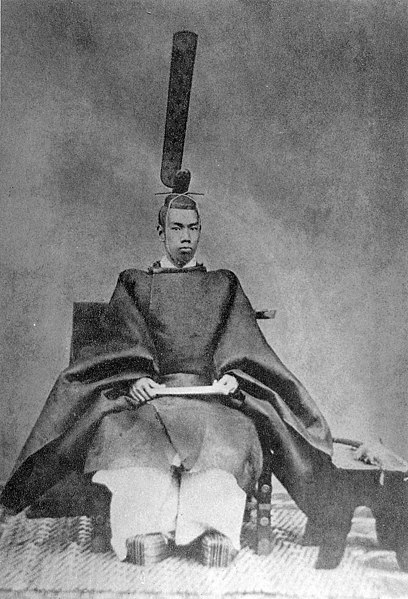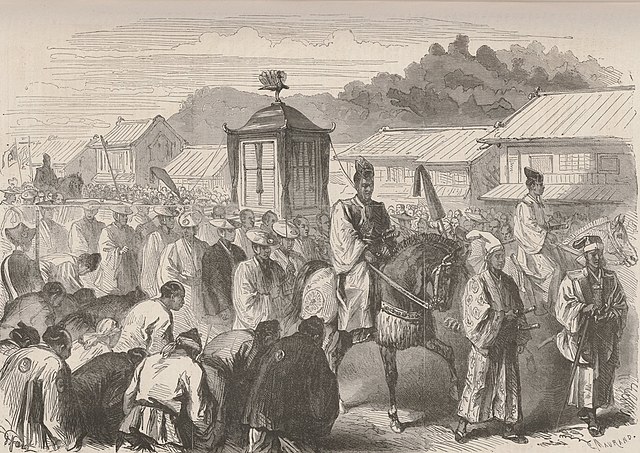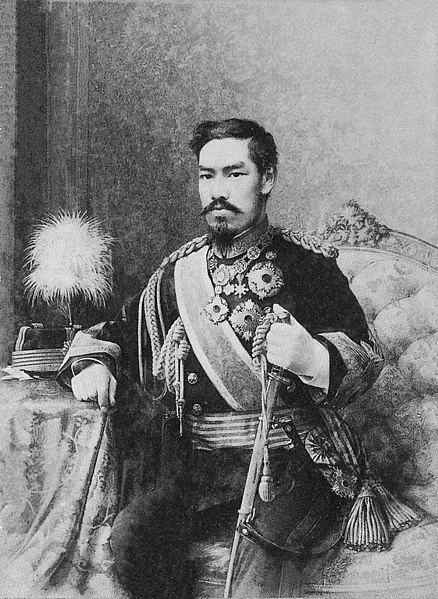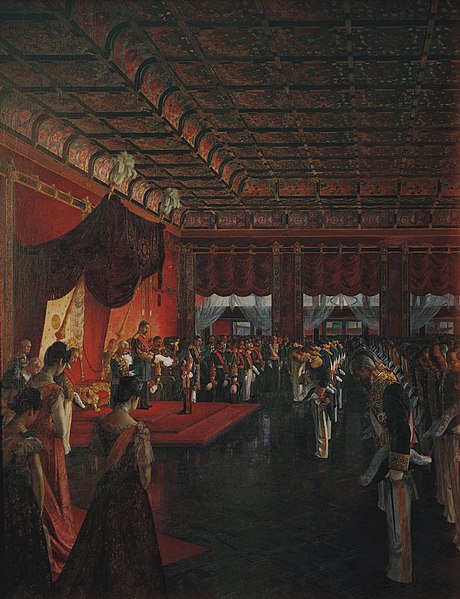Isawa Shūji was a Japanese educator of the Meiji period.
Isawa Shūji
Tokyo University of the Arts, a school which Isawa Shuji helped establish
The Meiji era was an era of Japanese history that extended from October 23, 1868, to July 30, 1912. The Meiji era was the first half of the Empire of Japan, when the Japanese people moved from being an isolated feudal society at risk of colonization by Western powers to the new paradigm of a modern, industrialized nation state and emergent great power, influenced by Western scientific, technological, philosophical, political, legal, and aesthetic ideas. As a result of such wholesale adoption of radically different ideas, the changes to Japan were profound, and affected its social structure, internal politics, economy, military, and foreign relations. The period corresponded to the reign of Emperor Meiji. It was preceded by the Keiō era and was succeeded by the Taishō era, upon the accession of Emperor Taishō.
Emperor Meiji (1872)
The fifteen-year-old Meiji Emperor, moving from Kyoto to Tokyo at the end of 1868, after the fall of Edo
Emperor Meiji c. 1888
Ceremony for the Promulgation of the Constitution by Wada Eisaku, showing the Emperor presenting the Constitution to Prime Minister Kuroda Kiyotaka at a ceremony in the Imperial Palace on 11 February 1889 (Meiji Memorial Picture Gallery)






